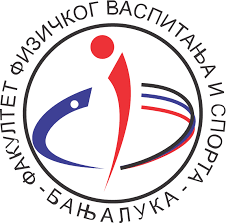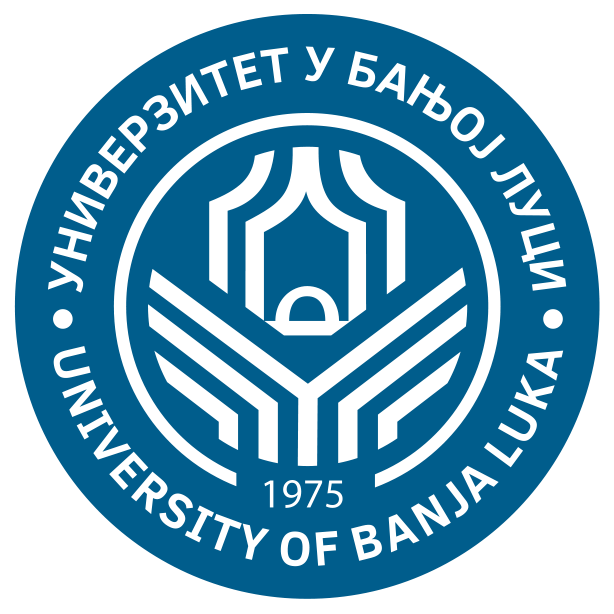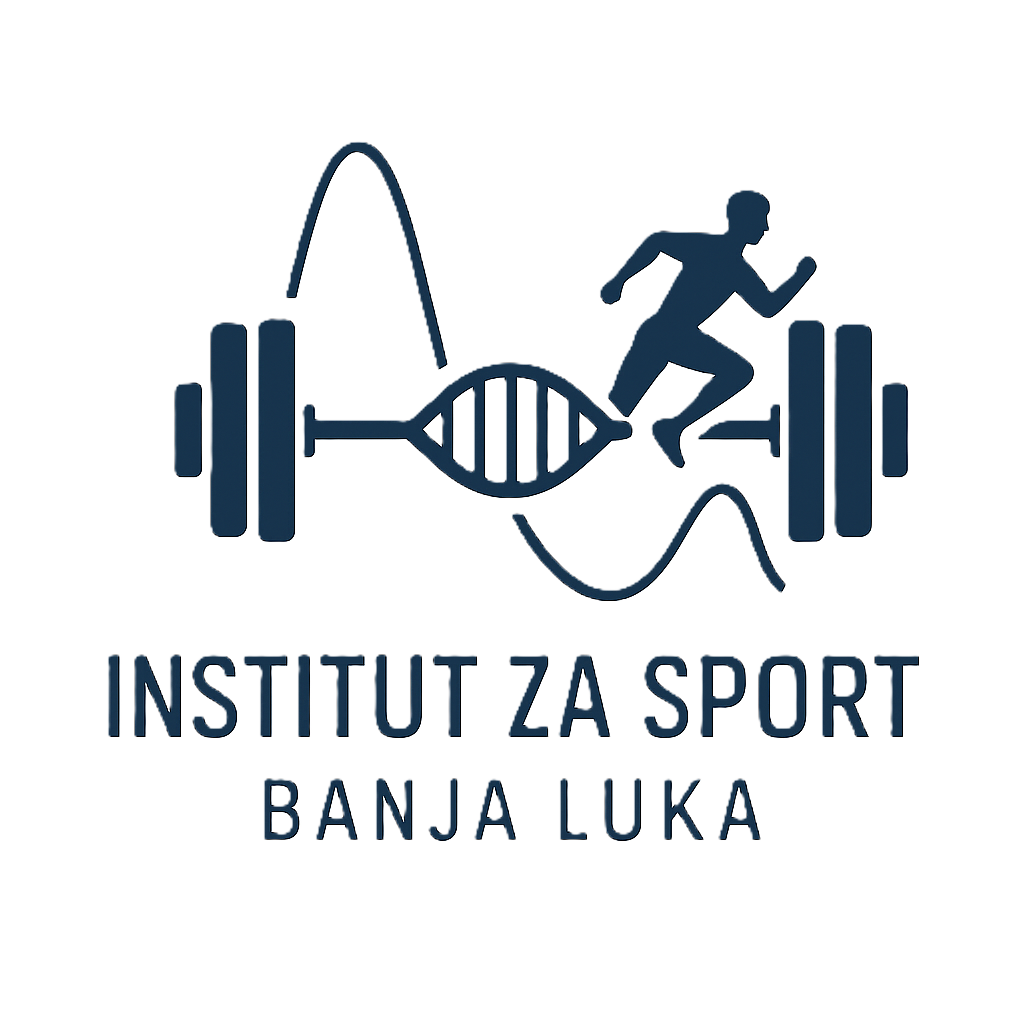About us
SportLogia journal is an Open Access journal since 2010, with double blind peer-review process, published by University of Banja Luka, Faculty of Physical Education end Sports. Since 2024, the journal has undergone a transition to a new web page. All pertinent information regarding the journal prior to this transfer can be accessed on this link.
Copyrights and Licencing
All articles can be freely downloaded and used in accordance with the stated license. Authors do not retain copyright and full publishing rights without restriction, but the Sportlogia journal does not charge authors any fees for the preparation, maintenance, or publication of articles.
There are no publication fees or APCs (Article Processing Charges).
The Sportlogia journal retains all copyright and publishing rights.
The Sportlogia journal uses a CC BY-NC license.
Review policy
The journal follows a double-blind peer-review process. Authors should ensure manuscripts are anonymized by removing any identifying details such as names, affiliations, contact information, or self-citations.
Peer review ensures the academic quality and integrity of submissions through constructive and professional feedback. Manuscripts that pass the initial editorial screening are sent to two external reviewers (or more, if needed). Two reviewers who are not part of the editorial board conduct the review, except in cases when an external reviewer cannot be found. In such cases, to ensure timely review, members of the editorial board who are familiar with the manuscript topic are assigned to provide a review.
Confidentiality
Submission content, including its abstract, ideas, and research data, should be treated as privileged information by reviewers and editors, and should not be shared with any third parties or used personally. As part of the double-blind peer-review process, authors and reviewers should be cautious not to reveal their identities.
Timeliness
We request that reviewers deliver review reports on time to ensure a good publication experience for everyone. If reviewers fail to meet the review deadline, they should notify the editorial office and request an extension as soon as possible.
Review policy
The journal follows a double-blind peer-review process. Authors should ensure manuscripts are anonymized by removing any identifying details such as names, affiliations, contact information, or self-citations.
Peer review ensures the academic quality and integrity of submissions through constructive and professional feedback. Manuscripts that pass the initial editorial screening are sent to two external reviewers (or more, if needed). Two reviewers who are not part of the editorial board conduct the review, except in cases when an external reviewer cannot be found. In such cases, to ensure timely review, members of the editorial board who are familiar with the manuscript topic are assigned to provide a review.
Confidentiality
Submission content, including its abstract, ideas, and research data, should be treated as privileged information by reviewers and editors, and should not be shared with any third parties or used personally. As part of the double-blind peer-review process, authors and reviewers should be cautious not to reveal their identities.
Timeliness
We request that reviewers deliver review reports on time to ensure a good publication experience for everyone. If reviewers fail to meet the review deadline, they should notify the editorial office and request an extension as soon as possible.
Aims
This journal aims to bridge the gap between theoretical and practical knowledge in the field of sport science, focusing on five key areas:
-
Exercise for Health:
- Publish research on the effectiveness of different exercise programs for promoting physical and mental health across diverse populations.
- Explore the physiological, biochemical, and psych-social mechanisms underlying the benefits of exercise.
- Investigate the role of exercise in preventing and managing chronic diseases, such as cardio-respiratory disease, diabetes, obesity, etc.
- Analyze the impact of exercise interventions on specific health conditions, like musculoskeletal disorders, cognitive decline, and mental health issues.
-
Training Methodology:
- Disseminate research on cutting-edge training methods for athletes of all levels and sports.
- Explore the optimization of training programs based on individual needs, physiological characteristics, and competitive goals.
- Analyze the effectiveness of different training modalities, such as strength training, endurance training, and skill-specific drills.
- Investigate the role of technology and data analysis in optimizing training programs and monitoring progress.
-
Sport Performance:
- Publish research on the determinants of athletic performance in various sports.
- Explore the physiological, biomechanical, and psychological factors that contribute to success in competition.
- Analyze the effectiveness of different performance enhancement strategies, including nutrition, recovery techniques, and mental preparation.
- Investigate the role of coaching and athlete-coach relationships in optimizing performance.
-
Analysis and Diagnosis:
- Disseminate research on advanced methods for analyzing and diagnosing athletic performance and injury risk.
- Explore the use of biomechanics, physiology, and technology to identify movement patterns and factors contributing to injury.
- Investigate the development and validation of diagnostic tools for early detection and prevention of sports injuries.
- Analyze the effectiveness of different injury rehabilitation and prevention programs.
-
Physical Education:
- Publish research on best practices for teaching Physical Education in schools and other settings.
- Explore innovative methods for promoting physical activity and healthy lifestyles among youth and adults.
- Analyze the effectiveness of different Physical Education curricula and teaching approaches.
- Investigate the role of Physical Education in promoting social and emotional development, as well as academic achievement.
By focusing on these five key areas, this journal strives to contribute to the advancement of sport science and its application to improve health, performance, and well-being for all.
Scope
The journal will consider original research articles, review articles, case studies, and methodological papers. We welcome submissions from researchers, coaches, practitioners, and educators across the sport science field. We encourage interdisciplinary research that bridges the gap between theory and practice, providing practical insights for enhancing health, performance, and well-being through physical activity.
Distinctive Features
- Open access: To promote accessibility and knowledge dissemination, all accepted papers are published open access and free of charge.
- Focus on real-world application: The journal prioritizes research with clear implications for improving health, performance, and Physical Education practices.
- Interdisciplinary approach: We encourage submissions that integrate knowledge from various disciplines within sport science and related fields.
- Global perspective: We welcome research from diverse populations and contexts, addressing the needs of athletes and individuals worldwide.
Expected Impact
This journal aims to become a leading source of information for researchers, coaches, practitioners, and educators in the field of sport science. We strive to contribute to the advancement of knowledge and practice in exercise for health, training methodology, sport performance, analysis & diagnosis, and Physical Education, ultimately promoting health, well-being, and excellence in physical activity.
This journal aims to be a valuable resource for:
- Sport scientists and researchers
- Coaches and athletes
- Physical educators
- Healthcare professionals
- Students and scholars interested in sport and exercise science
- Policymakers and public health officials
Archiving & Data Policy
To guarantee that all papers published in the journal are maintained and permanently accessible, a complete archival copy of each article is stored in electronic format at the journal web page. Additionally, authors are encouraged to self-archive the final PDF version of their articles in open electronic archives that conform to standards of Open Archives Initiative



